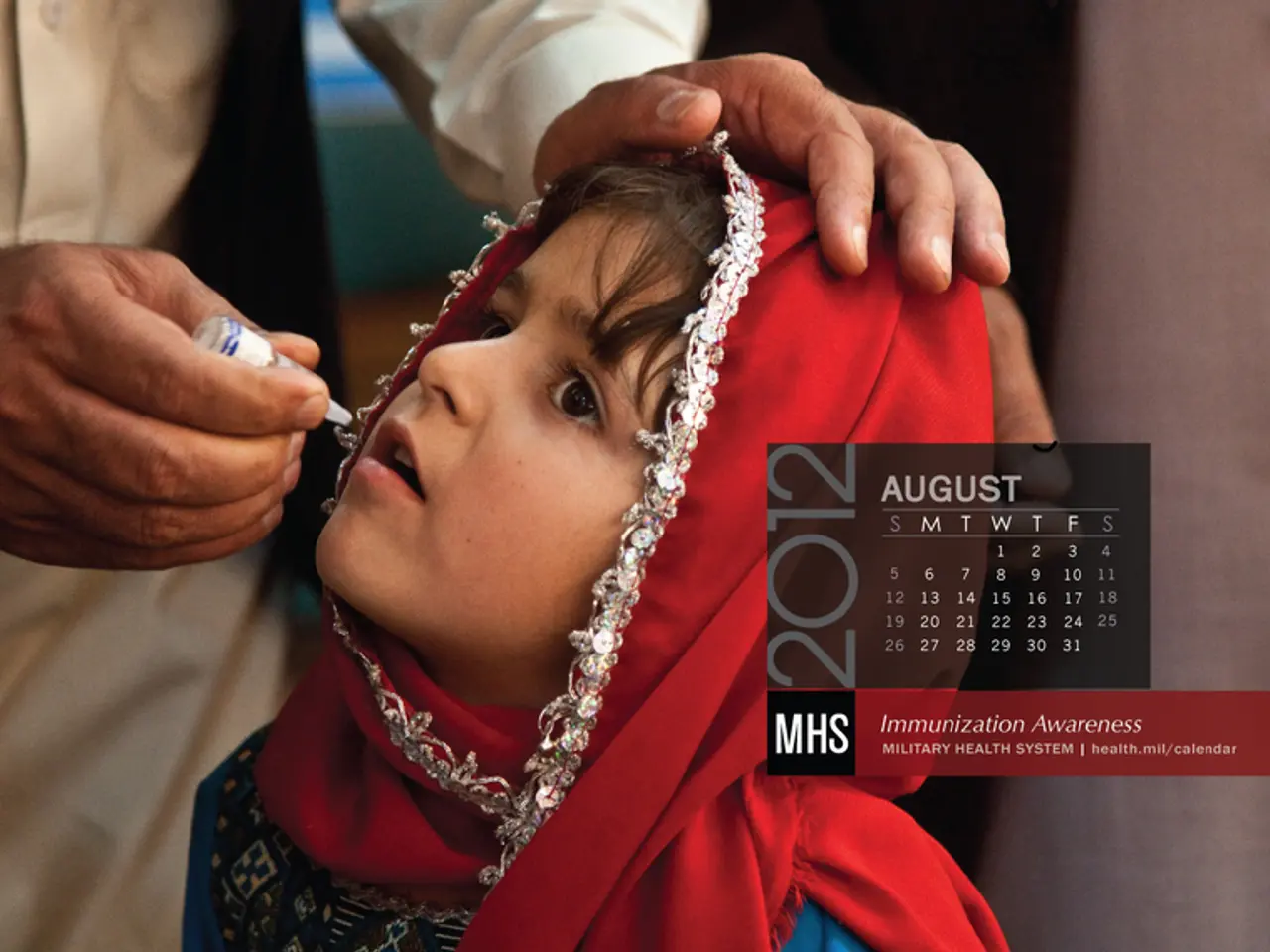Revised MMRV vaccination guidelines suggested by the CDC advisory committee
The Advisory Committee on Immunization Practices (ACIP) is currently considering changes to the childhood immunization schedule, raising concerns among health professionals and parents alike.
One of the key changes being considered is the delay of hepatitis B shots for newborns. This proposal has been met with criticism from experts like Tony Fiore, a former CDC scientist who helped develop the hepatitis B vaccine. Fiore called the proposed delay deeply troubling, fearing it could erode public confidence and potentially trigger outbreaks.
The ACIP is also weighing recommendations on the measles, mumps, rubella (MMR) vaccine. The panel has reviewed CDC data linking two-dose MMRV vaccines to a higher risk of febrile seizures, leading to a recommendation that the MMRV vaccine not be given before age 4, and children in this age group should receive separate vaccines instead.
The new chairperson of the ACIP is Dr. Martin Kulldorff, who suggested only trusting scientists who are willing to debate fellow scientists with different views. This comes amid ongoing controversy about vaccines in Georgia, with a key question being who to trust.
The votes on ACIP's recommendations must be approved by the CDC director before becoming official guidance. On the matter of hepatitis B vaccination at birth, the vote was 8-3, with one member abstaining, indicating a divided opinion within the committee. The ACIP is expected to decide on Friday whether to recommend that some babies can wait a month for hepatitis B shots.
For more than three decades, infants have received a hepatitis B shot at birth and the first MMR dose in early childhood. The vaccination rates for MMR in Georgia have dropped below the herd immunity threshold of 95%, raising concerns about the potential for outbreaks.
The ACIP met at the Centers for Disease Control and Prevention's Chamblee campus this week, amid allegations from former CDC officials that Health and Human Services Secretary Robert F. Kennedy Jr. pressured them to roll back vaccine policies without scientific evidence. The American Academy of Pediatrics announced it would no longer participate in the committee.
The ACIP will reconvene on Friday to consider recommendations on COVID-19 vaccines for the upcoming respiratory season. As the debate over childhood immunizations continues, the public awaits the committee's decisions with anticipation and apprehension.




